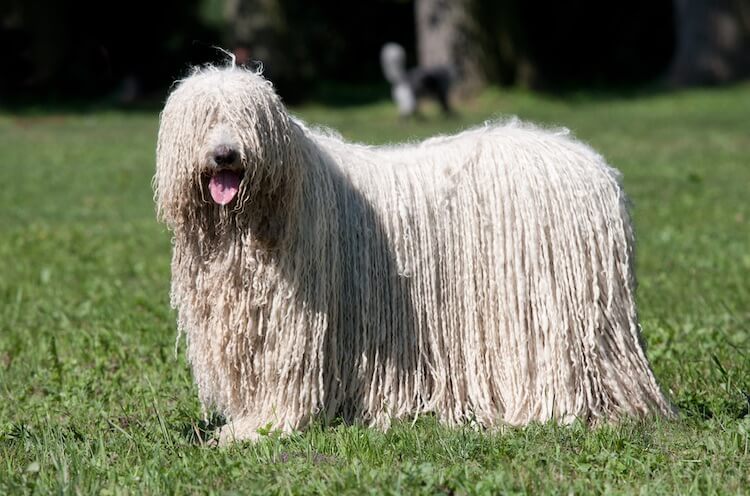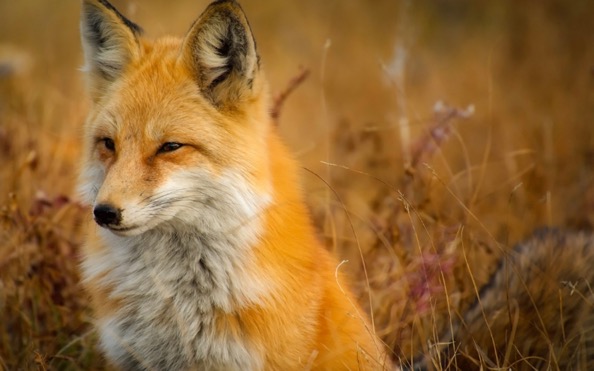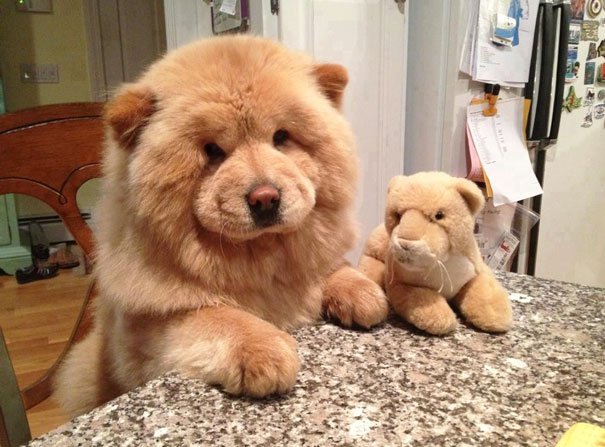Are you allergic to dogs and/or don’t want to mess with dog hair all over your house? If you’re looking for a non-shedding dog for your home, you’ve come to the right place. We’ll cover dog allergies, shedding issues and then take a look at non-shedding dog breeds that can work for you!
Connect with a verified veterinarian in minutes. Licensed vets are available 24/7 to answer your questions. No need to worry about your furry family member.
Non-shedding dogs are seen as better for people with dog allergies. These types of dog breeds are generally labeled as hypoallergenic. However, there are some things you need to keep in mind when it comes to hypoallergenic dogs.
All Dogs Shed & the Hair Allergy Misconception
All dog breeds shed to some degree, but there are certain breeds who shed less. It’s easier to cope with the lower amounts of hair or fur around the house. You don’t have to clean as often and won’t have to vacuum your clothes before leaving the house for work or school! But remember, there’s no breed of dog that does not shed. There is no such thing as a hypoallergenic dog breed.
There’s a misunderstanding when it comes to dogs that shed. Many people who have dog allergies mistakenly believe they’re allergic to the dog’s fur or hair. The fact of the matter is that a dog allergy isn’t caused by a dog’s hair; instead, a dog allergy is caused by the proteins a dog “sheds” through his saliva, dander and urine.
These proteins cause an immune reaction in people who are allergic to dogs. Their immune system over-reacts to proteins in the environment that most people can tolerate with no problem. If you have a dog allergy, you’re reacting to the proteins released by a dog, not his hair or fur. However, the hair and fur do contain these proteins due to a dog’s dander sticking to the fur, licking himself, etc.
Allergic reactions can range from mild to severe and even life-threatening. Most people who have a dog allergy are somewhere on the mild to severe spectrum. The most common allergy symptoms to dogs include sneezing, itchiness (nose, eyes, skin), runny nose and sneezing. Moderate to severe allergic reactions may include these symptoms, but may also include asthma problems that sometimes (rarely with a dog allergy) leads to death. As you can see, a dog allergy isn’t very pleasant.
What Can You Do About a Dog Allergy
In spite of having a dog allergy, you may still truly want a furry dog companion. There are some things you can do to reduce your dog’s allergy-causing proteins, rather than completely avoiding dogs all together.
Regular Bathing
Regular bathing can significantly reduce the amount of allergy-causing proteins on by a dog. With a lower level of allergens, you may be able to better tolerate having a dog. However, if not bathed regularly, you can expect that allergens will buildup on your dog’s skin and fur. This quickly becomes a problem, depending on how sensitive you are to dog proteins.
Regular Grooming is a Must
When it comes to shedding, regular grooming is a must—no matter if you have a hypoallergenic breed or a low-shedding dog. Grooming—brushing or combing—helps to loosen and remove dead fur before it falls off your dog.
Brushing and combing also keep your dog’s fur from snarling and tangling—becoming a huge matted mess. Living with matted and tangled hair is not comfortable for your dog. The hair pulls when he goes about his every day activities. Not only that, but living with tangles traps dirt and debris in your dog’s hair, making for irritated and itchy skin.
Brushing and combing also distribute your dog’s natural oil through his fur, making his fur shiny and healthy looking
Regular grooming, which includes bathing and brushing or combing, will keep your dog looking and feeling his best, while also keeping fur to a minimum and lowering the level of allergens he’s shedding through his skin, saliva and urine. If you’re not sure how often to brush your canine companion, then be sure to ask your vet or groomer.

Review symptoms, medications & behavior to keep your pets healthy with a Vet Online in just minutes.
Ask a Vet Live NowAre Hypoallergenic Dogs Really Hypoallergenic?
Certain dog breeds labeled as “hypoallergenic” can still cause an allergic reaction in some people. So, why are these dogs called hypoallergenic?
We saw that all dogs “shed” proteins that cause allergies, well some dog breeds shed fewer amounts of these proteins than other breeds. That’s why they’re called hypoallergenic.
Due to the mistaken idea that people are allergic to the dog’s hair, low- or non-shedding breeds were seen as hypoallergenic. These breeds were thought to cause fewer allergies in people allergic to dogs. Even so, some dog breeds do seem to be better for people who have dog allergies.
So, if you have a dog allergy and/or don’t want to have dog fur all over your home, there are some dog breeds to check out. First, we’ll take a look at several types of large dog breeds with minimal shedding and are listed as hypoallergenic.
Large Dog Breeds with Minimal Shedding
Here are some large dog breeds with minimal shedding—one of these may be a good fit for you and your family!
1). Giant Schnauzer: these dogs are just like their smaller counterparts—full of energy and playful. They were bred to be working dogs used to herd and guide. Giant Schnauzers are also known for their intelligence. These dogs are high energy and can be destructive when bored and left to their own devices. This breed has minimal shedding and their coat requires weekly brushing. They should be groomed everything four to six times a year.
2). Irish Water Spaniel: these dogs love to swim—as you can tell from their breed name! This breed was bred as a hunting dog and is known for its intelligence loyalty. They’re also very happy to please their owners, and make great companion dogs. You’ll find this breed is high-energy and needs quite a bit of exercise. Irish Water Spaniels are low-shedding, and their coat only needs occasional brushing or trimming.
3). Standard Poodle: most of us are familiar with poodles—they’re highly intelligent, athletic and beautiful. They love to please their people! These dogs were bred as water retrievers—they were trained to recover ducks and other waterfowl when hunting with their masters. Poodles are active and require daily exercise. You’ll love their minimally shedding coat, which does require regular grooming.
Large Dog Breeds that Don’t Shed
Let’s take a look at some large dog breeds that don’t shed and are hypoallergenic.
1). Airdale Terrier: this is the largest breed when it comes to terriers. They’re often described as sweet and friendly, but can also be dignified. Be ready—these dogs are fully of energy! They were bred to be working and hunting dogs. You’ll have to be sure to give your Airdale Terrier enough exercise; if they are stuck inside and alone all the time, these dogs can become destructive. While Airdales shed, it can be kept to a minimum with regular brushing.
2). Bouvier Des Flandres: these dogs don’t shed very much; however, their fur has been known to harbor dirt and debris. These are athletic dogs that were bred for herding and working on farms. Bouvier are big and strong, and can weight up to 100 lbs. Expect to be out exercising your dog every day if you choose this breed! This breed is known to be quite intelligent and assertive. They are also quite protective. These dogs require regular brushing and grooming.
3). Komondor: this breed looks like a giant mop used to wash floors! Komondors are considered a rare breed, though according to the AKC, they’re one of the most popular large dog breeds. They were originally bred to guard livestock but now make wonderful companions. These dogs are known as calm and gentle, and they love their family. While they do have some energy, they also like to naps. A Komondor’s hair resembles “dreadds” that take a lot of work. This breed needs regular grooming and brushing to keep their coat clean and allergens to a minimum.
Next, we’ll take a look at quiet dog breeds that don’t shed.
Quiet Dog Breeds That Don’t shed
If you’re looking for a non-shedding, hypoallergenic dog that’s quiet, you’ve come to the right place! Some people prefer dogs that are quiet, especially when it comes to living in an apartment. You don’t want your dog to bark all the time and upset the neighbors. Here are some breeds that will fit your requirements:
1). Bichon Frise: this breed is considered cheerful and loving—but watch out! They’re also known for being cunning little trouble makers! The Bichon Frise gets along with everyone, including other animals. Be aware that this breed has a high energy level and requires regular exercise—and we mean regular. This breed requires little grooming and sheds very little, though they do need daily brushing to keep their hair from matting. In addition, this breed is low-level when it comes to noise.
You don’t have to worry about yippiness with the Bichon Frise!
2). Greyhounds: it may surprise you to find this breed listed as both quiet and hypoallergenic; however, they are great dogs for people with dog allergies and they’re pretty quiet. Greyhounds are known for running and their speed. However, the truth is that they also love to just be quiet and sit with you—like a couch potato. These dogs are gentle and quiet. They require little grooming—they have a short coat and no undercoat. You’ll love a greyhound and they’ll love you back.
3). Basenji: this breed is known for being a “barkless” dog. They originated in the Congo and were bred to be hunting dogs. They’re independent, but kind and loving, too. Expect to get out your walking shoes every day with this high energy working breed! They need a lot of exercise—they especially love running and “working.” These dogs require a low amount of grooming and are quiet. Rather than barking, these dogs are known for their “yodeling.” So, when they do decide to communicate, they can be a bit noisy. On the whole, though, they are quiet and loving—and a great choice if you need a hypoallergenic low-shedding dog.
Next, we’ll take a look at a couple of the healthiest dog breeds that don’t shed.
Healthiest Dog Breeds That Don’t Shed
Here are a couple of dog breeds that are the healthiest and low shedding!
1). Havenese: these small dogs are known for their love of being petted; they’re also known as one of the ultimate lapdogs. Havenese don’t like to be away from their owners. These dogs are very healthy and require little exercise to stay healthy. They are curious and loving dogs and can live up to 13 years with proper care. While they need to be brushed regularly, they are low-shedding, making them a good choice for those with dog allergies.
2). Affenpinscher: these small dogs are generally very healthy. They were bred to be ratters—so are fully of energy and feisty! They are known for their intelligence and sturdiness. Affenpinschers make excellent watchdogs and take their job very seriously. They’ll guard their territory with every bone in their little body! These dogs love to please and need some training to curb their tendency of having a mind of their own. You’ll need to brush your dog’s coat a few times a week, and will need to visit a groomer about every 6-8 weeks.
As you can see, there are no breed of dogs that does not shed. Most breeds will shed some, while others have minimal shedding. When it comes to choosing your hypoallergenic, non-shedding companion, you have a wide variety of dog breeds to consider. Be sure to consider you and your family’s home size, if you have small children look for breeds that love and/or tolerate small kids, and make sure your personality and energy level match the type of dog you choose! We wish you all the best in finding your fur-ever non-shedding companion!
Connect with a verified veterinarian in minutes. Licensed vets are available 24/7 to answer your questions. No need to worry about your furry family member.

Kyoko
Kyoko is from a family of 3 and moved to New York with her parents and siblings when she was 13. Kyoko is fond of spending a great amount of time with pets, specifically her beagle Luna and cat Missy. Her boyfriend often complains that she spends too much time giving attention to their animals. Kyoko has written dozens of articles concerning pets and is aiming at owning a pet shop one day!
Review symptoms, medications & behavior to keep your pets healthy with a Vet Online in just minutes.
Ask a Vet Live Now



